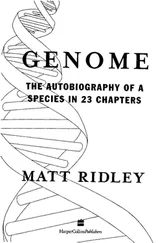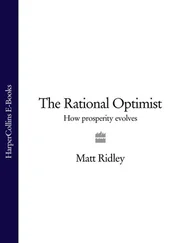The Queen - Matt Ridley
Здесь есть возможность читать онлайн «The Queen - Matt Ridley» весь текст электронной книги совершенно бесплатно (целиком полную версию без сокращений). В некоторых случаях можно слушать аудио, скачать через торрент в формате fb2 и присутствует краткое содержание. Жанр: Старинная литература, на английском языке. Описание произведения, (предисловие) а так же отзывы посетителей доступны на портале библиотеки ЛибКат.
- Название:Matt Ridley
- Автор:
- Жанр:
- Год:неизвестен
- ISBN:нет данных
- Рейтинг книги:4 / 5. Голосов: 1
-
Избранное:Добавить в избранное
- Отзывы:
-
Ваша оценка:
- 80
- 1
- 2
- 3
- 4
- 5
Matt Ridley: краткое содержание, описание и аннотация
Предлагаем к чтению аннотацию, описание, краткое содержание или предисловие (зависит от того, что написал сам автор книги «Matt Ridley»). Если вы не нашли необходимую информацию о книге — напишите в комментариях, мы постараемся отыскать её.
Matt Ridley — читать онлайн бесплатно полную книгу (весь текст) целиком
Ниже представлен текст книги, разбитый по страницам. Система сохранения места последней прочитанной страницы, позволяет с удобством читать онлайн бесплатно книгу «Matt Ridley», без необходимости каждый раз заново искать на чём Вы остановились. Поставьте закладку, и сможете в любой момент перейти на страницу, на которой закончили чтение.
Интервал:
Закладка:
Clare left her that night:
COURTLY LOVE
Human mating systems are greatly complicated by the fact of inherited wealth. The ability to inherit wealth or status from a par-MONOGAMY AND THE NATURE OF WOMEN
::: 239 :::
ent is not unique to man. There are birds that succeed to the ownership of their parents ' territories by staying to help them rear subsequent broods: Hyenas inherit their dominance rank from their mothers (in hyenas, females are dominant and often larger); so do many monkeys and apes. But human beings have raised this habit to an art. And they usually show a much greater interest in passing on wealth to sons than to daughters. This is superficially odd: A man who leaves his wealth to his daughters is likely to see that wealth left to-his certain granddaughters: A man who leaves his wealth to his sons is likely to see the wealth left to what may or may not be his grandsons. In the few matrilineal societies there is indeed such promiscuity that men are not sure of paternity, and in such societies it is uncles that play the role of father to their nephews: 49
Indeed, in more stratified societies the poor often favor their daughters over their sons. But this is not because of certainty of paternity but because poor daughters are more likely to breed than poor sons. A feudal vassal 's son had a good chance of remaining childless, while his sister was carted off to the local castle to be the fecund concubine of the resident lord. Sure enough, there is some evidence that in the fifteenth and sixteenth centuries in Bed-fordshire, peasants left more to their daughters than to their sons.'°
In eighteenth-century Ostfriesland in Germany, farmers in stagnant populations had oddly female-biased families, whereas those in growing populations had male-biased families: It is hard to avoid the conclusion that third and fourth sons were a drain on the family unless there were new business opportunities, and they were dealt with accordingly at birth, resulting in female-biased sex ratios in the stagnant populations."
But at the top of society, the opposite prejudice prevailed.
Medieval lords banished many of their daughters to nunneries."
Throughout the world rich men have always favored their sons and often just one of them. A wealthy or powerful father, by leaving his status or the means to achieve it to his sons, is leaving them the wherewithal to become successful adulterers with many bastard sons. No such advantage could accrue to wealthy daughters.
This has a curious consequence: It means that the most
::: 240 :::
The Red Queen
successful thing a man or a woman can do is beget a legitimate heir to a wealthy man. Logic such as this suggests that philanderers should not be indiscriminate: They should seduce the women with the best genes and also the women with the best husbands, who therefore have the potential to produce the most prolific sons: In medieval times this was raised to an art: The cuckolding of heiress-es and the wives of great lords was considered the highest form of courtly love: Jousting was little more than a way for potential philanderers to impress great ladies: As Erasmus Darwin put it: Contending boars with tusks enamel'd strike, And guard with shouldershield the blow oblique;
While female bands attend in mute surprise, And view the victor with admiring eyes: So Knight on Knight, recorded in romance,
Urged the proud steed, and couch'd the extended lance;
He, whose dread prowess with resistless force,
Bless'd, as the golden guerdonof his toils, Bow'd to the Beauty, and receiv'd her smiles:"
At a time when the legitimate eldest son of a great lord would inherit not only his father 's wealth but also his polygamy, the cuckolding of such lords was sport indeed: Tristan expected to inherit the kingdom of his uncle, King Mark, in Cornwall. While in Ireland he ignored the attentions of the beautiful Isolde until she was summoned by King Mark to be his wife. Panic-struck at the thought of losing his inheritance but determined to save it at least for his son, he suddenly took an enormous interest in Isolde. Or at least so Laura Betzig retells the old story: 54
Betzig's analysis of medieval history includes the idea that the begetting of wealthy heirs was the principal cause of Church-state controversies: A series of connected events occurred in the tenth century or thereabouts: The power of kings declined and the power of local feudal lords increased. As a consequence, noblemen gradually became more concerned with producing legitimate heirs to succeed to their titles, as the seigneurial system of primogeni-MONOGAMY AND THE NATURE OF WOMEN
::: 241 :::
ture was established. They divorced barren wives and left all to the firstborn son. Meanwhile, resurgent Christianity conquered its rivals to become the dominant religion of northern Europe: The early Church was obsessively interested in matters of marriage, divorce, polygamy, adultery, and incest. Moreover, in the tenth century the Church began to recruit its monks and priests from among the aristocracy:"
The Church 's obsessions with sexual matters were very different from St: Paul' s: It had little to say about polygamy or the begetting of many bastards, although both were commonplace and against doctrine. Instead, it concentrated on three things: first, divorce, remarriage, and adoption; second, wet nursing, and sex during periods when the liturgy demanded abstinence; and third,
" incest" between people married to within seven canonical degrees: In all three cases the Church seems to have been trying to prevent lords from siring legitimate heirs: If a man obeyed the doctrines of the Church in the year 1100, he could not divorce a barren wife, he certainly could not remarry while she lived, and he could not adopt an heir: His wife could not give her baby daughter to a wet nurse and be ready to bear another in the hope of its being a son, and he could not make love to his wife "for three weeks at Easter, four weeks at Christmas, and one to seven weeks at Pentecost; plus Sundays, Wednesdays, Fridays, and Saturdays—days for penance or sermons; plus miscellaneous feast days:" He also could not bear a legitimate heir by any woman closer than a seventh cousin—which excluded most noble women within three hundred miles: It all adds up to a sustained attack by the Church on the siring of heirs, and
" it was not until the Church started to fill up with the younger brothers of men of state that the struggle over inheritance—over marriage—between them began." Individuals in the Church (disinherited younger sons) were manipulating sexual mores to increase the Church 's own wealth or even regain property and titles for themselves: Henry VIII ' s dissolution of the monasteries, following his break with Rome, which followed Rome ' s disapproval of his divorcing the sonless Catherine of Aragon, is a sort of parable for the whole history of Church-state relations."
::: 242 :::
The Red Queen
Indeed, the Church-state controversy was just one of many historical instances of wealth-concentration disputes. The practice of primogeniture was a good way to keep wealth—and its polygamy potential—intact through the generations: But there were other ways, too: First among them was marriage itself. Marrying an heiress was always the quickest way to wealth: Of course, strategic marriage and primogeniture work against each other: If women inherit no wealth, then there is nothing to be gained from marrying a rich man ' s daughter: Among the royal dynasties of Europe, though, in most of which women could inherit thrones (in default of male heirs), eligible marriages were often possible: Eleanor of Aquitaine brought Britain 's kings a large chunk of France. The War of the Spanish Succession was fought solely to prevent a French king from inheriting the throne of Spain as the result of a strategic marriage: Right down to the Edwardian practice of English aristocrats marrying the daughters of American robber barons, the alliances of great families have been a force to concentrate wealth.
Читать дальшеИнтервал:
Закладка:
Похожие книги на «Matt Ridley»
Представляем Вашему вниманию похожие книги на «Matt Ridley» списком для выбора. Мы отобрали схожую по названию и смыслу литературу в надежде предоставить читателям больше вариантов отыскать новые, интересные, ещё непрочитанные произведения.
Обсуждение, отзывы о книге «Matt Ridley» и просто собственные мнения читателей. Оставьте ваши комментарии, напишите, что Вы думаете о произведении, его смысле или главных героях. Укажите что конкретно понравилось, а что нет, и почему Вы так считаете.












